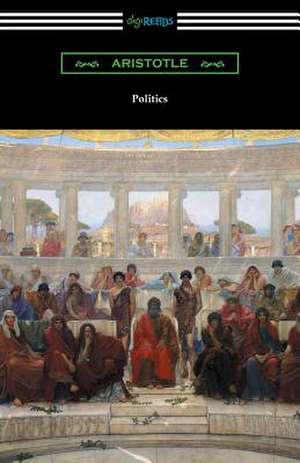Politics (Translated by Benjamin Jowett)
Autor Aristotle Traducere de Benjamin Jowetten Limba Engleză Paperback
Greek philosopher and scientist, Aristotle, lived in the 4th century B.C. and is thought of as one of the most important figures from classical antiquity. Aristotle was probably the most famous member of Plato's Academy in Athens, whose writings would ultimately form the first comprehensive system of Western philosophy. His writings were not constrained to simply one field of inquiry but covered such various subjects as physics, biology, metaphysics, logic, ethics, aesthetics, rhetoric, linguistics, politics and government. Contained in this volume is Aristotle's "Politics," a treatise dealing with political philosophy. The word politics comes from the Greek word "polis" or city and literally means things concerning the city. Given the smaller populations of ancient times the city was viewed as the highest level of community and thus the most relevant in discussing political concerns. Aristotle's "Politics" is composed of eight books in which he discusses the politics of the household, different forms of political regimes, the classification and role of citizens, the types of constitutions, the distribution of political power, the ideal state, and education within it. Heavily influenced by Plato's "Republic" and "Laws," Aristotle's "Politics" is one of the most important works on government from classical antiquity. This edition is printed on premium acid-free paper and follows the translation of Benjamin Jowett.
Preț: 74.69 lei
Nou
14.29€ • 15.03$ • 11.81£
Carte tipărită la comandă
Livrare economică 17 aprilie-01 mai
Specificații
ISBN-10: 1420956515
Pagini: 178
Dimensiuni: 140 x 216 x 10 mm
Greutate: 0.23 kg
